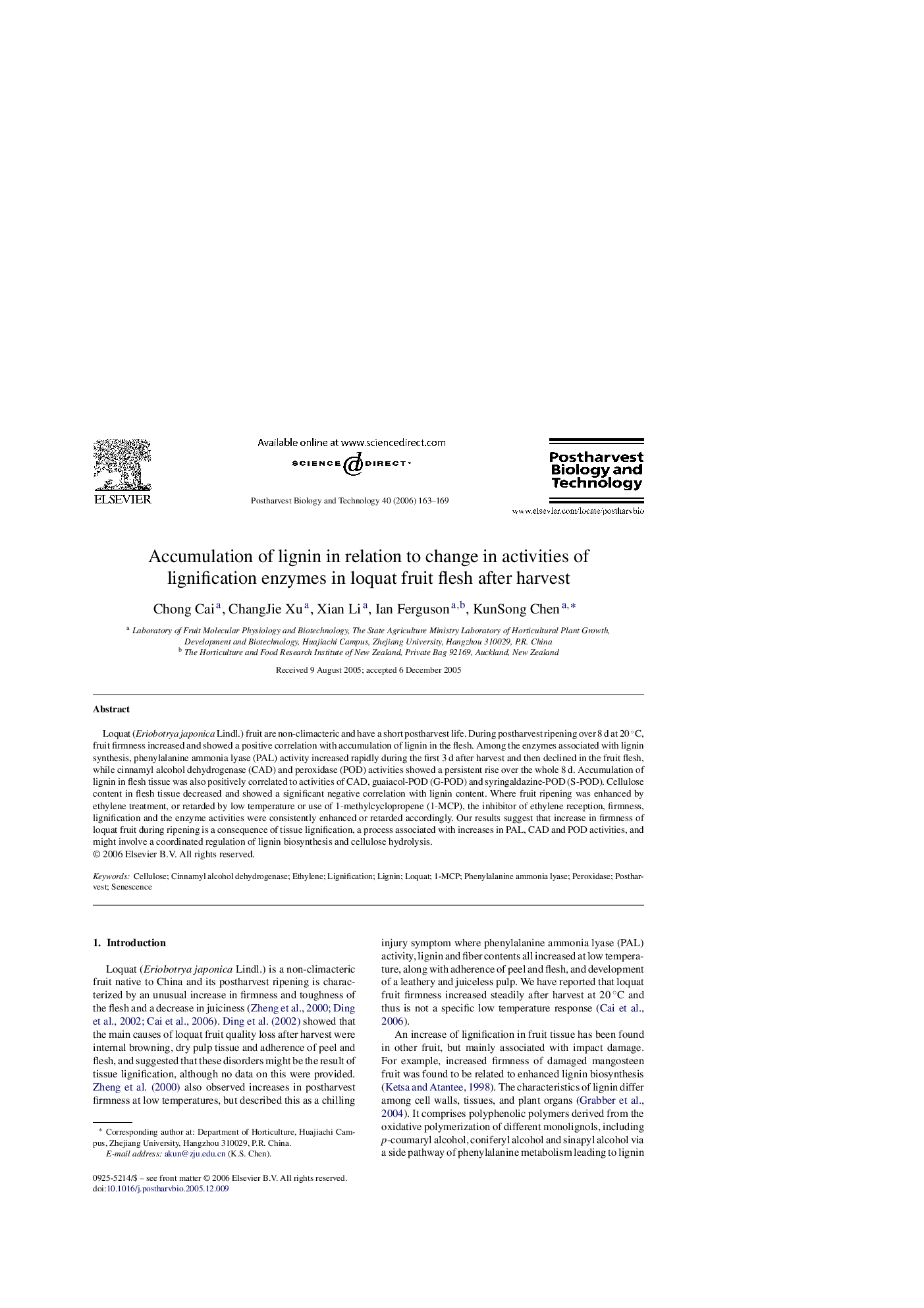| Article ID | Journal | Published Year | Pages | File Type |
|---|---|---|---|---|
| 4519978 | Postharvest Biology and Technology | 2006 | 7 Pages |
Loquat (Eriobotrya japonica Lindl.) fruit are non-climacteric and have a short postharvest life. During postharvest ripening over 8 d at 20 °C, fruit firmness increased and showed a positive correlation with accumulation of lignin in the flesh. Among the enzymes associated with lignin synthesis, phenylalanine ammonia lyase (PAL) activity increased rapidly during the first 3 d after harvest and then declined in the fruit flesh, while cinnamyl alcohol dehydrogenase (CAD) and peroxidase (POD) activities showed a persistent rise over the whole 8 d. Accumulation of lignin in flesh tissue was also positively correlated to activities of CAD, guaiacol-POD (G-POD) and syringaldazine-POD (S-POD). Cellulose content in flesh tissue decreased and showed a significant negative correlation with lignin content. Where fruit ripening was enhanced by ethylene treatment, or retarded by low temperature or use of 1-methylcyclopropene (1-MCP), the inhibitor of ethylene reception, firmness, lignification and the enzyme activities were consistently enhanced or retarded accordingly. Our results suggest that increase in firmness of loquat fruit during ripening is a consequence of tissue lignification, a process associated with increases in PAL, CAD and POD activities, and might involve a coordinated regulation of lignin biosynthesis and cellulose hydrolysis.
